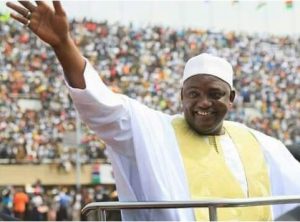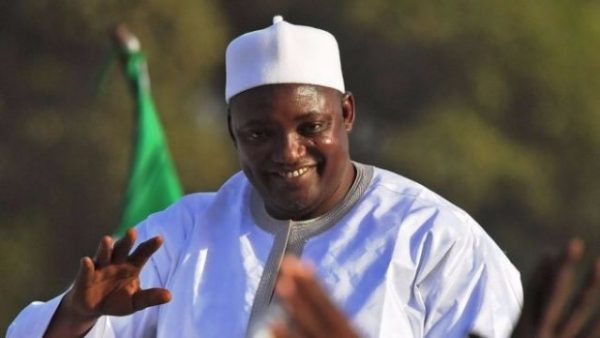
(JollofNews)- Press freedom has become the beacon of hope for many Gambians with renewed sense of liberty. Given the increasing desire to hold public officers accountable, and the proliferation of online news reporting, the government is facing new challenges to preserve freedom of expression.
While the government has an onerous obligation to guarantee press freedom for proper functioning of our democracy, journalists also have a corresponding obligation to pursue nothing, but the truth in outmost professional manner to maintain the integrity of journalism. Undoubtedly, with intertwined interests objective reporting becomes more difficult to attain in the pursuit of the truth.
Despite this journalists are expected to promote democracy by imparting right and accurate information necessary for the public to make a right political choice. The press is seen by many prominent jurists as a fourth branch of the state that has fiduciary duty to hold other state’s organs accountable. So its role must not be undermined by unwarranted government‘s interferences or unprofessional journalism.
It must be said the way in which the online newspapers continue to contribute to the enlightenment of Gambians deserve commendation. Let be honest here, the ways in which they disseminate information have undoubtedly created a renewed sense of liberty for all Gambians. They provide platform for all voices including dissenting, concurring, and even controversial voices to uphold freedom of expression.
Reflecting on this new phenomenon, it is well fitting to remember Deyda Hydra, Chief Ebrima Manneh, and Ebrima Solo Sandeng for their exemplary heroism to defend press freedom and the freedom of expression. We cannot fill the gaping holes left in our hearts by their unjustified disappearances. They are great men who stood for what they believed in. Their courage and convictions seem to have sustained a hope for change that triggered significant democratic change in our motherland, the Gambia. In this sense, people came out in their thousands to express their political preferences despite the relentless state interference.
Although I did not meet Deyda in person, in my mind, he was modest man who chose the part of giving voice to the supressed, at the same time keeping organised powers of the state accountable. He would have worked tireless in his office to ensure the right and accurate information is imparted to the people in an impeccable manner. His desire to enlighten Gambians seemed to have taken priority over the risks he was exposing himself in defence of freedom of expression. He was unwilling to cave in for state intimidation. A man of remarkable character who could have colluded with the establishment to subvert public interest, but as a principled man he stood his ground against the mighty state apparatus.
For Chief Manneh from my understanding, at the time of his disappearance, he was vibrant and energetic man who dedicated his time to journalism, with the hope that, a world would become a better place to live without callous statesmen; indeed, a world where people’s power is the mightiest of all powers. The tasks they have started must be accomplished with integrity, but also without a shred of fear as they are necessary to preserve human security.
My thoughts are with their families for their sufferings. There can be no doubt, men and women of such character should serve as exemplary to all Gambians, because they have the propensity to vehemently resist any coercive power that purported to silent dissenting voices. The principle they stood for must be guarded jealously by all democrats if we accept the fact that power belongs to people not to one individual. The alleged attack on Foroyaa Newspaper’s reporter has no place in The New Gambia.
In my judgement, when politics becomes theatrical, it is less transformative to promote inclusive democracy. Since the job of a political protagonist is to argue his case very well before the people, I see no point in engaging in physical altercations that may not produce any electoral success. In a deliberative democracy rational argumentation seems the best way to solve political differences. An attack on a news reporter is an attack on freedom of expression.
A duty of a sovereign government is to protect the benefit of press freedom as well its harmful effects on citizens’ privacy. This can be achieved by maintaining a diverse media that self-regulates to uphold the standards in the Declaration of Principles on the Conduct of Journalists in order to prevent unwarranted self-censorship, which is corrosive to freedom of expression. It may also be necessary to provide remedy for the injuries, distress and indignity caused by irresponsible journalism.
Press freedom has constitutional values that go beyond individual personal and political interests. As the press attempts to seek the truth in matters of public interest it may expose corruption in high places that must be eradicated to promote better management of public resources. In accordance with mass communication theory, the media must accomplish four main functions to serve public interest.
Firstly, it must maintain a constant surveillance of events, ideas and persons active in public life, leading both to a flow of information to the public and exposing violations of the moral and social order. Secondly the press must provide an independent and radical critique of the society and its institutions. Thirdly, it must encourage access to difference perspective and allow participation of different actors to promote pluralism. Finally, it must contribute to shared consciousness, identity and coherence of the community to promote community cohesion.
While government seems fully committed of press freedom, bestowing upon citizens formal right to freedom of expression is not enough to ensure fair access to information. The government must unlock the ownership structure of state media by separating it from the government through constitutional means. This will maintain the independence and impartiality of such institution so as to unlock access to all political parties. The same proposition is supported by Jürgen Hubermas’s theory of democracy that emphasises the need for institutional independence of public institutions to ensure equal access.
The case of Chief Manneh and Deyda illustrate the risks associated with journalism under an autocratic regime. Brutal intimidations can only lead to self-censorship which means selective reporting that avoids the risks facing a journalist. It is a given fact many journalists were illegal arrested without any reasonable justification in past governments. Imprisonment of journalists and the closing down of newspapers, radio stations were often common practices of government. As a consequence freedom of expression was non-existence.
Although physical threats seem more prevalent in autocratic regimes, economic threats are also a familiar feature of democratic governments. It could be argued that this class of threats are more difficult to control because they tend originate from different dimensions. For instance, the pressure exerts on newsrooms’ editors to meet the demand of business community and the audience may influence the content of the news. In this sense, spin doctors and news editors are bound to collectively produce news that is business worthy. Inevitably, this may lead to selective reporting at the expense of public interest. It is safe to say many news medium are at risk of encountering such problem given their dependent on advertisement revenue. This suggests to me, the need for public funding of the press, or the very least generous donations from the public if we want to mitigate the effect of special interests in news reporting.
Obviously, news medium have a legitimate reason to make news business worthy in order to survive in a very competitive market. But what seems unacceptable is the distortion of information for the purpose of profitability. Such acts conflict good journalism practice. Journalists must adhere to principle of self-regulation that adheres to international standard to avoid such pitfalls. The fact is that news medium can attain objectivity by imparting difference perspectives of a story, so that the news readers can make an informed decision as to the truthfulness of the story. In this way, news medium would avoid biting the hand that feeds, while maintaining its commercial viability.
Freedom of expression is a fundamental human right which encompasses freedom of the press. Government must create the right environment that enhances editorial independence and pluralistic media. Deyda and Manneh principles must be embedded in our constitution to uphold freedom of expression necessary in a democratic society.
The media must avoid falling into the traps of the maxim which says: ‘freedom of the press is limited to those who own one’.
Forward with the Gambia!
By Solomon Demba






Top Man !!! excellently presented.